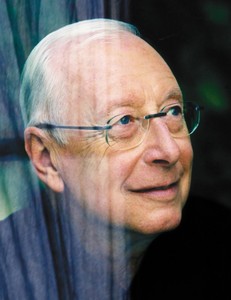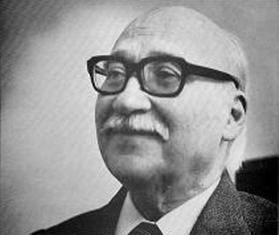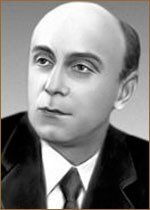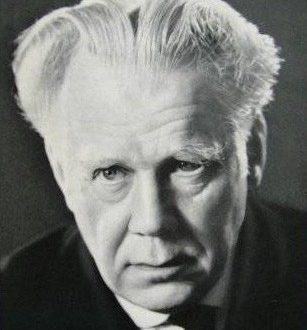
William Christie |
William Christie

William Christie – harpsichordist, conductor, musicologist and teacher – is the inspiration behind one of the most exciting projects of the last quarter of the XNUMXth century: the vocal-instrumental ensemble Les Arts Florissants (“The Blooming Arts”), one of the recognized world leaders in the field of authentic performance of early music.
Maestro Christie was born on December 19, 1944 in Buffalo (USA). Studied at Harvard and Yale Universities. Lives in France since 1971. The turning point in his career came in 1979, when he founded the ensemble Les Arts Florissants. His pioneering work led to a revival of interest in and recognition of baroque music in France, especially the French repertoire of the 1987th and XNUMXth centuries. He brilliantly showed himself both as a musician – the leader of an ensemble that soon became popular in France and in the world, and as a figure in the musical theater, who introduced the musical world to new interpretations, mainly of a forgotten or completely unknown operatic repertoire. Public recognition came to him in XNUMX, with a production of Lully’s Hatis at the Paris Opéra-Comique, with which the ensemble subsequently toured the world with great success.
William Christie’s enthusiasm for French Baroque music has always been great. He equally wonderfully performs operas, motets, court music of Lully, Charpentier, Rameau, Couperin, Mondoville, Campra, Monteclair. At the same time, the maestro constantly explores and performs with pleasure the European repertoire: for example, the operas of Monteverdi, Rossi, Scarlatti, as well as the scores of Purcell and Handel, Mozart and Haydn.
The extensive discography of Christie and his ensemble (over 70 recordings made at Harmonia Mundi and Warner Classics/Erato studios, many of which have received awards in France and abroad) proves the versatility and versatility of the musician. Since November 2002, Christy and the ensemble have been recording at EMI/Virgin Classics (the first CD is Handel’s sonatas with violinist Hiro Kurosaki, accompanist of Les Arts Florissants).
William Christie has fruitful collaborations with famous theaters and opera directors such as Jean Marie Villeget, Georges Lavelli, Adrian Noble, Andrei Serban and Luc Bondy. This collaboration always leads to spectacular achievements in the field of musical theater. Notable events were the productions of Rameau’s operas (The Gallant Indies, 1990 and 1999; Hippolyte and Arisia, 1996; Boreads, 2003; Paladins, 2004), operas and oratorios by Handel (Orlando, 1993; Hatis and Galatea, 1996; Semele, 1996; Alcina, 1999; Rodelinda, 2002; Xerxes, 2004; Hercules, 2004 and 2006), operas by Charpentier (Medea, 1993 and 1994) , Purcell (King Arthur, 1995; Dido and Aeneas, 2006), Mozart (The Magic Flute, 1994, Abduction from the Seraglio, 1995) in theaters such as Opéra-Comique, Opera du Rhin, Théâtre du Chatelet and others. Since 2007, Christie and Les Arts Florissants have collaborated with the Royal Opera in Madrid, where the ensemble will present all of Monteverdi’s operas for several seasons (the first, Orfeo, was staged in 2008).
Christie’s and his ensemble’s engagements at the Aix-en-Provence Festival include Rameau’s Castor et Pollux (1991), Purcell’s The Faerie Queene (1992), Mozart’s The Magic Flute (1994), Handel’s Orlando (1997) , “Return of Ulysses to his homeland” by Monteverdi (2000 and 2002), “Hercules” by Handel (2004).
William Christie regularly receives invitations to take part in prestigious opera festivals (such as Glyndebourne, where he conducted the “Orchestra of the Enlightenment”, performing the oratorio “Theodore” and the opera “Rodelinda” by Handel). As a guest maestro, he conducted Gluck’s Iphigenia in Tauris, Rameau’s Gallant Indies, Handel’s Radamist, Orlando and Rinaldo at the Zurich Opera. At the National Opera in Lyon – Mozart’s operas “That’s what everyone does” (2005) and “The Marriage of Figaro” (2007). Since 2002 he has been a permanent guest conductor of the Berlin Philharmonic.
William Christie is an internationally recognized educator who has educated several generations of singers and instrumentalists. Many of the musical directors of today’s well-known baroque ensembles (Marc Minkowski, Emmanuelle Aim, Joel Syuyubiet, Hervé Nike, Christophe Rousset) began their careers in the ensemble under his direction. In 1982–1995 Christie was a professor at the Paris Conservatoire (taught an early music class). He is often invited to give master classes and conduct seminars.
In continuation of his teaching activities, William Christie founded the Academy of Young Singers in Caen, called Le Jardin des Voix (“Garden of Voices”). The five sessions of the Academy, held in 2002, 2005, 2007, 2009 and 2011, aroused great interest in France and Europe, as well as in the USA.
In 1995, William Christie received French citizenship. He is Commander of the Order of the Legion of Honor, Commander of the Order of Arts and Letters. In November 2008, Christie was elected to the Academy of Fine Arts, and in January 2010 officially admitted to the Institute of France. In 2004, he was awarded the Liliane Bettencourt Prize for Choral Singing by the Academy of Fine Arts, and a year later, the Prize of the Georges Pompidou Association.
For the past 20 years, William Christie has been living in the south of the Vendée in an early 2006th-century house, recognized in XNUMX as a historical monument, which he revived from the ruins, restored and surrounded by a unique garden in the spirit of the magnificent Italian and French gardens of the “golden age” he loved so much.
Source: Moscow Philharmonic website





